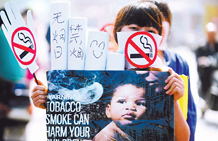
Rein in hospital drug budgets, commission says
Source:chinadaily.com.cn
Wang Xiaodong
Updated: 2015-06-19
Hospitals should limit their drug budgets to 30 percent of total business expenditures, according to a circular issued Friday by the National Health and Family Planning Commission.
Provincial drug purchase authorities should buy major essential drugs and non-patent drugs through public bidding and establish an open and transparent price-negotiation mechanism to buy patient drugs, the circular said.
Jiang Yu, a health and medical policies researcher at the Development Research Center for the State Council, said putting a budget restriction on drug purchases can control hospitals’drug expenditures and may help bring down the price of some drugs.
Prescription drugs are a major source of income for many public hospitals in China. That has prompted some hospitals to prescribe patients more expensive drugs to earn higher profits.
Income from drug sales accounts for more than 40 percent of the total income of some hospitals in China, according to some experts.
The loss of income in hospitals after drug prices are brought down will be compensated in other ways, including adjusting charges for medical services, increasing the government subsidy and reducing operating costs of hospitals, Sun Zhigang, deputy minister in charge of the National Health and Family Planning Commission, said last month.

World Family Summit
The World Family Organization was founded in Europe in 1947 and headquartered in Paris.
Link: China's Central Government / World Health Organization / United Nations Population Fund / UNICEF in China
Copyright 2014 National Health and Family Planning Commission of the PRC All rights reserved






